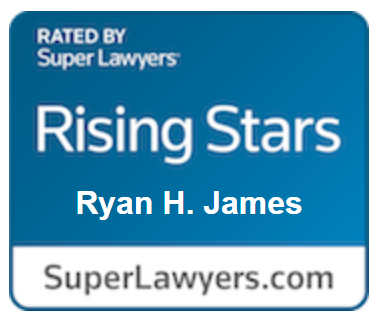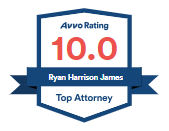America’s “criminal-justice system” is with little question the best in the world. But the use of the word “justice” to describe it is somewhat misleading as what the system produces more frequently than it should are injustices.
According to The National Registry of Exonerations, 2,588 people have been exonerated since 1989 from their wrongful convictions, and these same people have lost a combined period of 23,000 years in prison. In this sense, therefore, our system shouldn’t be thought of as a justice-dispensing system, but a dispute-resolution system, where flawed people trying their level best frequently err and don’t always get it right.
In Pennsylvania, when that happens and a person convicted of a crime has exhausted their right to appeal, the Post-Conviction Relief Act (PCRA) is the last and “sole means” for correcting a wrongful conviction in state court. However, obtaining relief under the PCRA is limited to a select class of convicted persons, for a limited time, and on limited grounds.
WHO IS ELIGIBLE FOR POST-CONVICTION RELIEF?
To be eligible for post-conviction relief under the PCRA, the person seeking relief must demonstrate, in addition to being convicted of a crime, that they will be “at the time relief is granted”:
- Currently serving a sentence of imprisonment, probation, or parole for the at-issue crime;
- Awaiting execution of a sentence of death for the at-issue crime;
- Serving a sentence which must expire before the person may commence serving the disputed sentence; or
- Has completed a sentence of imprisonment, probation or parole for the crime and is seeking relief based upon DNA evidence.
The person seeking post-conviction relief cannot have previously argued (or litigated) the claim they bring under the PCRA, nor can they have “waived” the “allegation of error” in previous proceedings.
Lastly, the failure to have previously litigated the claim brought under the PCRA “could not have been the result of any rational, strategic or tactical decision by counsel.”
In sum, therefore, those eligible for post-conviction relief must generally be serving a sentence, and the claim they raise must not have been argued before or waived for strategic or tactical reasons.
WHEN IS POST-CONVICTION RELIEF AVAILABLE?
By its name, post-conviction relief is available after a person has been convicted of a crime. And under the PCRA, a person seeking post-conviction relief must do so “within one year of the date the judgment becomes final.”
When “the judgment becomes final” can be a moving mark. If a person doesn’t take a direct appeal, then the judgment becomes final after 30 days following the date of conviction, which is the deadline for filing a Notice of Appeal in the Superior Court. Similarly, if a person doesn’t file a Petition for Allowance of Appeal to the Pennsylvania Supreme Court after an unsuccessful direct appeal, then the judgment becomes final 30 days following the Superior Court’s judgment. However, if a person exhausts their appeals up through the Pennsylvania Supreme Court, then their “judgment becomes final” 90 days thereafter, which is the period for appealing to the United States Supreme Court. U.S. Sup. Ct. R. 13.
Under the PCRA, if a person doesn’t make a timely claim for post-conviction relief then the consequences are harsh and unforgiving: the court is without jurisdiction to grant post-conviction relief. However, there are three exceptions to the one-year filing deadline under the law:
- The failure to raise the claim was the result of interference by government officials with the presentation of the claim in violation of the laws or constitutions of either Pennsylvania or the United States;
- The facts upon which the claim is predicated were unknown to the person and could not have been ascertained by the exercise of due diligence; or
- The right asserted is a constitutional right that was recognized by either the Pennsylvania or U.S. Supreme Court, which that court held to apply retroactively.
WHAT ARE THE PARTICULAR GROUNDS FOR POST-CONVICTION RELIEF?
The specific errors or defects that a person may complain of as the cause for his or her conviction or sentence fall into one of seven categories:
- A violation of the Constitution of Pennsylvania or the Constitution or laws of the United States (§ 9543(a)(2)(i))
- Ineffective assistance of counsel (§ 9543(a)(2)(ii))
- A plea of guilty unlawfully induced (§ 9543(a)(2)(iii))
- Improper obstruction by Commonwealth officials of appellate rights (§ 9543(a)(2)(iv))
- The unavailability of newly discovered evidence (§ 9543(a)(2)(vi))
- The imposition of a sentence greater than the lawful maximum (§ 9543(a)(2)(vii))
- A proceeding in a tribunal without jurisdiction (§ 9543(a)(2)(viii)).
By far, the most common claim for post-conviction relief is a claim of ineffective assistance of counsel. This claim should not be confused with a claim of legal malpractice, rather it should be considered a constitutional challenge to the adequacy and proficiency of counsel’s stewardship under the Sixth Amendment of the United States Constitution.
To prevail on a claim of ineffective assistance of counsel requires not merely a showing that counsel made a mistake—a fact that is almost inevitable in any trial. Instead, the person claiming that their counsel rendered ineffective assistance must show that—
- counsel’s action or inaction was not the product of a strategic or tactical decision; and
- counsel’s action or inaction “prejudiced” the outcome of the case (in other words, the outcome of the proceeding would’ve been different but for counsel).
THE NEED FOR A POST-CONVICTION ATTORNEY
Not every criminal-defense attorney is suited to do post-conviction work. The work is intense both in terms of investigative work and legal research and writing. And additionally, it’s difficult for a lot of attorneys to do this work because doing so requires making claims against one’s colleagues—fellow attorneys—that they were ineffective. Accordingly, for these reasons, very few criminal-defense attorneys desire to undertake this work.
Attorney James, however, enjoys post-conviction work, and this firm was built up by accepting post-conviction appointments from numerous Allegheny County Criminal Division judges, who trusted Attorney James to serve as post-conviction counsel in upwards of 75 PCRAs.
Serving in the capacity as post-conviction counsel, these are some of the results obtained for clients over the years.
- Comm. v. Durrett-King, 195 A.3d 255 (Pa. Super. 2018): Successfully argued on appeal that trial counsel rendered ineffective assistance in failing to raise an affirmative defense to client’s third-degree felony fleeing-and-eluding charge. Case was remanded and the felony charge was ultimately vacated.
- Comm. v. R.M.: Client was convicted of first-degree murder in the early 2000s for a shooting that occurred when he was a minor. He was given a mandatory life-without-parole sentence. Relying on new precedent out of the U.S. Supreme Court, that sentence was vacated for a new sentence for 40 years to life.
- Comm. v. E.H.: Client was convicted of second-degree murder in 2009 for a shooting that occurred during the course of a robbery when he was a minor. He was given a mandatory life-without-parole sentence. Relying on new precedent out of the U.S. Supreme Court, that sentence was vacated for a new sentence for 40 years to life.
- Comm. v. D.W.: Obtained government’s concession that client’s trial counsel rendered ineffective assistance for failing to object to a lab report that was the lynchpin to the client’s fourth DUI conviction, which resulted in a state prison sentence. A new trial was granted and the charges were later dismissed.
- Comm. v. R.P.: Successfully argued that client’s plea counsel rendered ineffective assistance by providing him bad advice that his plea would not affect his right to bear arms. The conviction resulting from client’s plea was vacated, and the lead charge was ultimately reduced down to a summary offense that enabled the client to continue to lawfully possess a firearm.
- Comm. v. J.J.: Successfully argued that trial counsel rendered ineffective assistance in contesting the government’s evidence and probing the motive of one government witness to lie. New trial was granted for felony firearms charges, terroristic threats, simple assault, and recklessly endangering another person.
If you or a loved one has been convicted of a crime, call Pittsburgh post-conviction PCRA attorney, Ryan H. James, who has handled and argued these cases with successful results. Attorney James can be personally reached at 412-977-1827, or by e-mail at ryan@rhjameslaw.com
Serious issues deserve serious attention.
Fill out the form or call 412-896-1349 to speak with a defense attorney.
The use of the Internet or this form for communication with the firm or any individual member of the firm does not establish an attorney-client relationship. Confidential or time-sensitive information should not be sent through this form. This site is protected by reCAPTCHA and the Google Privacy Policy and Terms of Service apply.















